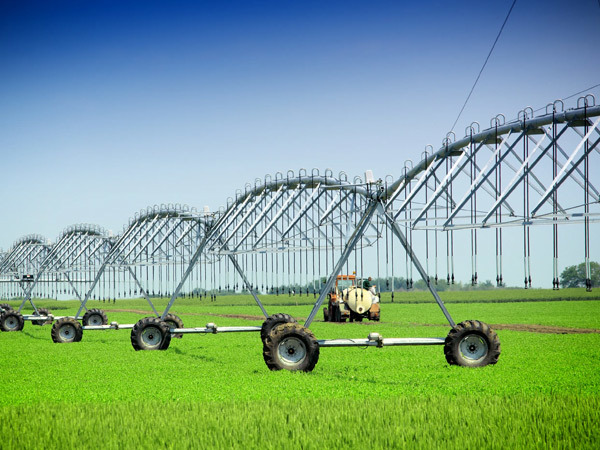The Advantages of Valley Lateral Move Irrigators Over Drip Systems: A Comprehensive Guide
Release time:
Oct 04,2025
The Advantages of Valley Lateral Move Irrigators Over Drip Systems Table of Contents 1. Introduction 2. Understanding Irrigation Systems 3. What Are Valley Lateral Move Irrigators? 4. Advantages of Valley Lateral Move Irrigators 4.1 Efficiency in Water Usage 4.2 Cost-Effectiveness 4.3 Reduced Labor Requirements 4.4 Flexibili
The Advantages of Valley Lateral Move Irrigators Over Drip Systems
Table of Contents
- 1. Introduction
- 2. Understanding Irrigation Systems
- 3. What Are Valley Lateral Move Irrigators?
- 4. Advantages of Valley Lateral Move Irrigators
- 4.1 Efficiency in Water Usage
- 4.2 Cost-Effectiveness
- 4.3 Reduced Labor Requirements
- 4.4 Flexibility and Adaptability
- 4.5 Superior Uniformity in Water Distribution
- 5. Comparing Drip Systems with Valley Lateral Move Irrigators
- 6. Environmental Impact of Valley Lateral Move Irrigators
- 7. Case Studies: Success Stories with Valley Lateral Move Irrigators
- 8. FAQs
- 9. Conclusion
1. Introduction
In the world of agriculture, efficient irrigation is essential for maximizing crop yield and ensuring sustainability. Among the various irrigation systems available today, **Valley Lateral Move Irrigators** have gained prominence due to their numerous advantages over traditional **drip systems**. This article delves into the key benefits of Valley Lateral Move Irrigators, providing insights that can help farmers optimize their irrigation practices.
2. Understanding Irrigation Systems
Irrigation plays a critical role in agriculture, enabling the growth of crops in areas with insufficient rainfall. Various irrigation systems, such as surface irrigation, sprinkler systems, and drip systems, offer different benefits and challenges. Understanding these systems is crucial for making an informed choice that aligns with farming goals.
3. What Are Valley Lateral Move Irrigators?
Valley Lateral Move Irrigators are a type of center pivot irrigation system designed to move laterally across a field, applying water uniformly. These systems consist of a series of connected spans, which operate on wheels and can be moved to cover large areas, ensuring efficient water distribution.
4. Advantages of Valley Lateral Move Irrigators
4.1 Efficiency in Water Usage
One of the most significant advantages of Valley Lateral Move Irrigators is their **efficiency in water usage**. These systems are designed to minimize water loss through evaporation and runoff. By applying water directly to the soil, they ensure that crops receive the moisture they need while conserving resources.
4.2 Cost-Effectiveness
Investing in Valley Lateral Move Irrigators can lead to long-term cost savings. These systems require less water and fertilizer, reducing expenses over time. Additionally, their durability and low maintenance costs contribute to overall cost-effectiveness, making them a wise choice for farmers looking to improve their bottom line.
4.3 Reduced Labor Requirements
Valley Lateral Move Irrigators significantly **reduce labor requirements** compared to traditional irrigation methods. Once set up, these systems operate with minimal human intervention, allowing farmers to focus on other critical aspects of their operations. This reduction in labor not only saves money but also increases productivity.
4.4 Flexibility and Adaptability
Another key advantage of Valley Lateral Move Irrigators is their **flexibility and adaptability**. These systems can be adjusted to suit various crop types and field shapes, making them suitable for diverse agricultural settings. Farmers can easily modify the irrigation schedule based on weather conditions and crop needs, ensuring optimal growth.
4.5 Superior Uniformity in Water Distribution
Uniformity in water distribution is critical for crop health. Valley Lateral Move Irrigators offer **superior uniformity**, ensuring that all areas of the field receive the same amount of water. This consistency helps prevent issues such as overwatering or underwatering, leading to healthier crops and improved yields.
5. Comparing Drip Systems with Valley Lateral Move Irrigators
While drip irrigation systems have their benefits, they also come with limitations. Drip systems are designed for targeted water delivery, which can be effective for certain crops but may not offer the same efficiency and scalability as Valley Lateral Move Irrigators. The choice between these two systems largely depends on the specific needs of the farm and the crops being grown.
6. Environmental Impact of Valley Lateral Move Irrigators
The environmental impact of irrigation practices is an increasingly important consideration for modern farmers. Valley Lateral Move Irrigators contribute positively to sustainability efforts by reducing water usage and promoting efficient nutrient application. Their ability to cover large areas also minimizes the disturbance of soil, supporting soil health and biodiversity.
7. Case Studies: Success Stories with Valley Lateral Move Irrigators
Numerous farms have successfully implemented Valley Lateral Move Irrigators, achieving impressive results. For instance, a vineyard in California reported a 30% reduction in water usage after switching from a drip system to a lateral move irrigator, leading to healthier vines and increased yields. Another case in the Midwest showed that a corn farmer improved productivity by 25% while lowering overall irrigation costs.
8. FAQs
What crops benefit most from Valley Lateral Move Irrigators?
Valley Lateral Move Irrigators are ideal for a wide range of crops, including corn, soybeans, and various fruits and vegetables, due to their efficient water distribution.
How do Valley Lateral Move Irrigators compare in terms of installation costs?
While initial installation costs may be higher than drip systems, the long-term savings on water, labor, and maintenance make them a cost-effective option.
Are Valley Lateral Move Irrigators suitable for all types of soil?
Yes, these systems can be adapted to various soil types, ensuring efficient water delivery and minimizing runoff.
What maintenance is required for Valley Lateral Move Irrigators?
Routine maintenance includes checking for leaks, ensuring proper alignment, and inspecting components for wear. Overall, they require less maintenance than drip systems.
Can Valley Lateral Move Irrigators be automated?
Absolutely! Many systems now come with automation options that allow farmers to control irrigation schedules remotely, increasing efficiency and convenience.
9. Conclusion
In conclusion, Valley Lateral Move Irrigators present numerous advantages over traditional drip systems, making them a superior choice for many agricultural operations. From **enhanced water efficiency** and **cost savings** to **reduced labor requirements** and **environmental sustainability**, these systems provide a comprehensive solution for modern farming needs. By understanding the benefits and implementing these advanced irrigation systems, farmers can optimize their crop production while promoting responsible resource management.
Learn more about industry dynamics
New customers enjoy 10% product discount
PRODUCT CENTER
CONTACT US
Address: 2-1-2301, Phoenix International Plaza, High-tech Zone, Jinan City, Shandong Province
Quality of service to win customer satisfaction


Shandong Yihe Agricultural Technology Co., Ltd.




